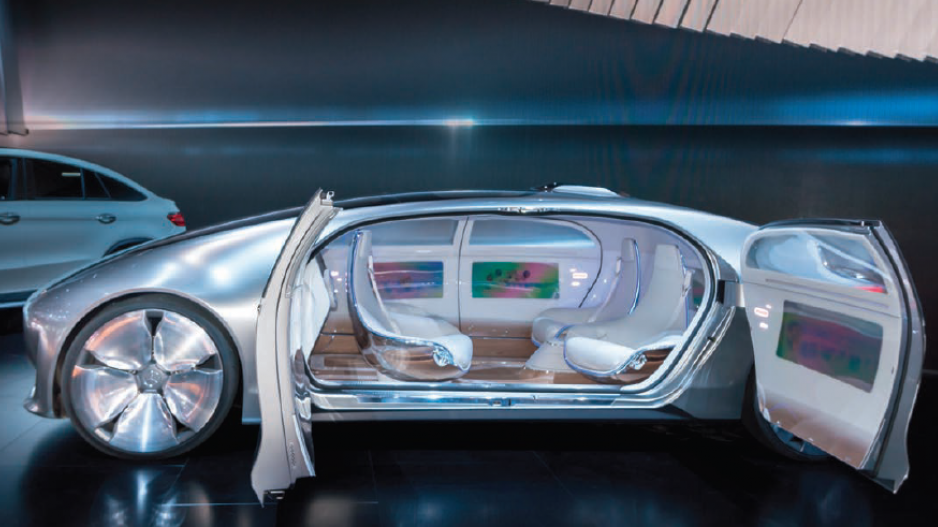Roads with minimal traffic. Buses with seats aplenty. Trains you can set your watch by.
It may seem like the dream scenario for proponents of Metro Vancouver’s ongoing transit plebiscite. But could it be driverless vehicles that usher in a new transportation oasis across the region?
University of British Columbia professor AnnaLisa Meyboom, director of the TIPSlab group studying transport infrastructure and public space, said social, legal and policy issues surrounding the technology make it difficult to pinpoint when driverless cars will be hitting the roads en masse in B.C.
But when they do arrive, they could shake up the public’s perception of transportation.
“They could make local buses and urban light rail obsolete,” she wrote in a March 19 blog post. “Private autonomous car-sharing services could take over public transit and taxis. Or public transit organizations could decide to run autonomous vehicle fleets. Much less parking will be required in congested areas because the car can park remotely or return home. Demand for retail and office parking could drop significantly. You could own a car without needing [a] parking space. Entire families could share a single car.”
B.C. has always been a forward-thinking jurisdiction when it comes to vehicle technology, according to Vancouver-based Mojio CEO Jay Giraud, who noted that Tesla (Nasdaq:TSLA) has used Vancouver as an early market for its electric vehicles.
Furthermore, 550 public charging stations for electric vehicles have been installed across the province, according to the Fraser Basin Council.
But even if British Columbians become early adopters of driverless cars, Giraud said there’s “no chance” transit will ever become a thing of the past.
“If anything, maybe buses will become self-driving sooner or later, and they’ll put an employee behind the wheel to monitor the bus for the first five years until the regulations change,” he said.
“Transit may not even change form very much as private-public car-sharing models become more common. I don’t think busing systems or trains and rail systems will ever become obsolete.”
Giraud said widespread adoption of driverless vehicles will likely be stymied in B.C. by cost, not regulatory issues or consumer skepticism.
“It just takes a long time for people to move on from the car they own.”
Giraud added that driverless vehicles aren’t likely to be on the road in great numbers in less than a decade.
His company has developed a wireless device that plugs into standard vehicles to connect them with smartphones and the Internet. Applications monitor activity in the vehicle and communicate with other vehicles on the road.
“We know there’s going to be a need for a very intelligent, very robust, very scaled network to manage the future of cars in whatever form they take,” Giraud said, adding that cybersecurity and safety issues will be of prime importance as regular cars communicate on the road with driverless vehicles.
Boston-based Northeastern University professor Tucker Marion, director of the school’s master of science in innovation and high technology program, agreed that security concerns will be one of the biggest obstacles to adoption in North America.
“When you add vehicle-to-vehicle communication, GPS and other wireless interaction [wireless Internet, etc.] combined with direct access to throttle and steering – security from hacking and other sources is paramount,” he said in an email to Business in Vancouver.
Tucker predicted the technology will change the “cultural landscape” in the next 10 to 15 years, assuming adoption rates increase.
While California and Nevada have adopted laws permitting driverless vehicles, Marion said pressure from special-interest groups could limit adoption rates in other jurisdictions.
“While the potential positive impact of more efficient trucking, delivery and taxi services is clear, jobs will be lost,” he said. “And this will certainly play a role in which states aggressively push for, or try to block, driverless-car-friendly legislation.” •




